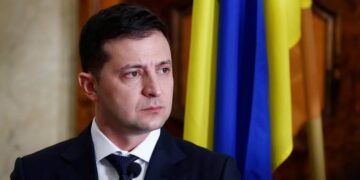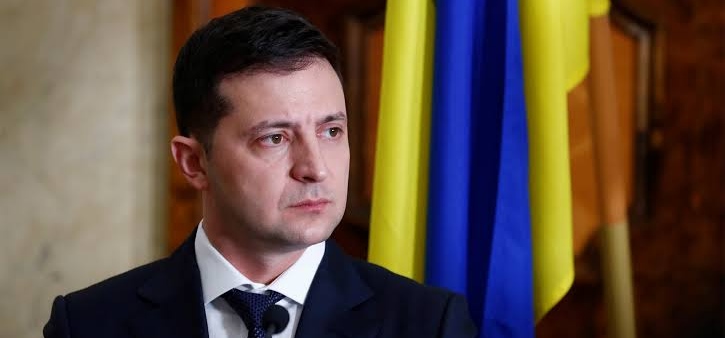By John Ikani
Ukrainian President Volodymyr Zelensky lashed NATO on Friday for ruling out a no-fly zone over Ukraine amid the ongoing conflict with Russia.
“Knowing that new strikes and casualties are inevitable, NATO deliberately decided not to close the sky over Ukraine,” he said in a video published by the presidency.
“Today the leadership of the alliance gave the green light for further bombing of Ukrainian cities and villages, refusing to make a no-fly zone.”
NATO has argued that a no-fly zone will result in confrontation with Moscow.
On Friday, NATO’s Secretary-General, Jens Stoltenberg, warned that the introduction of a no-fly zone could lead to a “full-fledged war in Europe involving many more countries and causing much more human suffering”.
But Mr Zelensky said he disagrees that direct action could “provoke Russia’s direct aggression against Nato”.
In angry comments, he said the argument reflects the “self-hypnosis of those who are weak, under-confident inside” and that Western reservations indicated that “not everyone considers the struggle for freedom to be Europe’s number one goal”.
“All the people who will die starting from this day will also die because of you. Because of your weakness, because of your disunity,” a furious Mr Zelensky added.
US Secretary of State Antony Blinken also ruled out the introduction of a no-fly zone, but expressed faith in Ukraine’s ability to win its war with Russia.
“I can’t tell you how long this will go on,” America’s top diplomat said. “I can’t tell you how long it will take. But the idea that Russia can subjugate to its will 45 million people who are ardently fighting for their future and their freedom, that does not involve Russia having its thumb on Ukraine, that tells you a lot, ” he told BBC.
As Russia’s invasion of Ukraine enters tenth day Moscow’s forces continue to heavily shell many cities.
Meanwhile, Putin on Friday moved to shut down independent media, forcing the BBC to leave the country and CNN to stop reporting.
He signed into effect new legislation imposing prison terms of up to 15 years for people charged with spreading ‘fake news’ about the military or calling for sanctions against the country.
Russia also cut access to Facebook, Twitter, and several news organizations’ websites, including the BBC, Voice of America and Radio Free Europe/Radio Liberty for spreading what it says is false information about its actions in Ukraine.
The conflict has also seen attack on the Zaporizhzhia nuclear plant in the southeastern city of Enerhodar on Friday.
The plant was under Russian control by Friday morning, after a tense night of heavy fighting.
Audio from inside the control room in Zaporizhzhia – Europe’s largest nuclear plant, which provided 20 percent of all Ukraine’s electricity – gave a sense of the panic among staff.
Workers could be heard desperately appealing to the Russians to stop shelling, warning them that they were risking a disaster.
The International Atomic Energy Agency (IAEA) has so far not registered any increase in radiation from around the site, but nuclear experts were warning that any shutting down of power to the plant could have dramatic consequences, stopping the cooling infrastructure with potentially catastrophic consequences.
Linda Thomas-Greenfield, the US ambassador to the UN, said on Friday in New York: ‘By the grace of God, the world narrowly averted a nuclear catastrophe last night.’




































